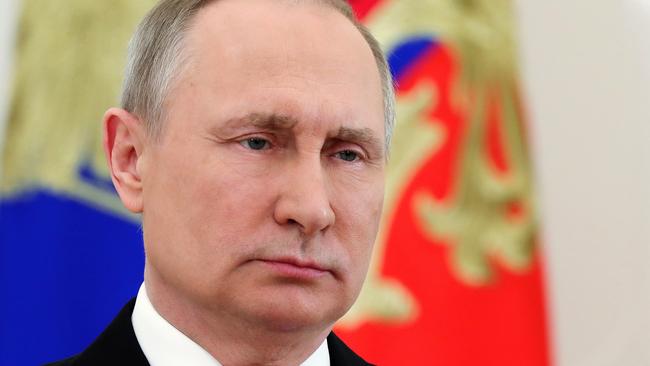
The key point about the Russian assassination attempt on double-agent Sergei Skripol in Britain earlier this month is that Vladimir Putin wanted it known that Russia was responsible.
By using the so-called novichok nerve agent, the Russians were putting an unmistakeable marker at the scene that could only be traced to Moscow. This is a weapons-grade chemical toxin developed in the 1990s. The lead Russian scientist behind its development defected and is living in the US. From him, Western defence and intelligence agencies have built a detailed understanding about the weapons.
Had they wanted discretion the assassins could have shot Skripol or run him over. As it was, the hit could not be more obviously Russian if the killers had worn Cossack boots and carried balalaikas.
There are two reasons why Putin would want to draw attention to himself. First, it plays well with many Russian voters who share his view that the West wants to harm Russia. However outrageous to Western sensibilities, Putin’s muscle-flexing is admired domestically.
Second, as a former KGB lieutenant colonel with 16 years’ active duty, including as an agent in East Germany, Putin is not beyond wanting to put the fear of God into Russia’s enemies abroad. The Russian Foreign Intelligence Service, known as the SVR — the modern KGB — has a long memory for agents who “turned”.
British chemical analysis will have proven to absolute certainty which Russian weapons laboratory the novichok agent came from. The delay since the March 5 assassination attempt would have been the result of corralling the US, Australia and many European countries into an unprecedented co-ordinated expulsion of Russian agents from over 20 countries.
The Department of Foreign Affairs and Trade lists 16 Russian diplomats based in Canberra and a further six at a Sydney consulate. By our standards that is a large diplomatic footprint, not explained by the tiny two-way trade relationship worth less than $800 million.
It’s common for Russia to deploy intelligence agents to Australia under the cover of a diplomatic passport. Being a “diplomat” automatically means that these people will have contact with officials, politicians and others of intelligence interest.
It’s likely that there will be more than two undeclared intelligence agents but keeping known agents in place is useful to our own intelligence community, hence the sensible-enough decision to limit Australia’s expulsion to two individuals.
New Zealand Prime Minister, Jacinda Ardern decided not to expel any Russians because it was thought there were no undeclared intelligence agents among the 17 Russian diplomats in Wellington. Ardern told local radio yesterday: “We ran a check. We don’t have those in New Zealand but if we did we would expel them.”
This follows New Zealand Foreign Minister Winston Peters’ delusional comments in early March that there was no evidence Russia was involved in shooting down the Malaysia Airlines flight MH17 over Ukraine in 2014.
Oh dear! Is New Zealand that far gone from its previous connection to the Western democracies?
Britain, Australia and other countries deserve credit for drawing a necessary red line but Putin is likely to continue this high-stakes game of asserting Russian power.
Putin’s Russia is more desperate, less disciplined and more dangerous than the old Soviet Union. More than spy games, we should worry that such risky behaviour is pushing the world closer to serious military conflict.
Peter Jennings is the executive director of the Australian Strategic Policy Institute and a former deputy secretary for strategy at the Defence Department






To join the conversation, please log in. Don't have an account? Register
Join the conversation, you are commenting as Logout